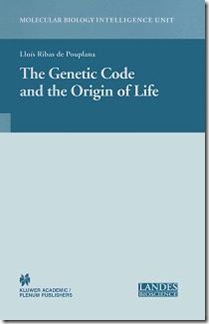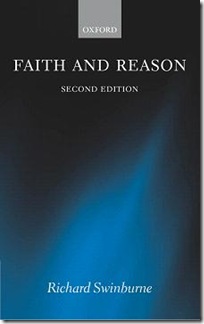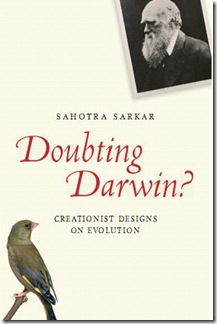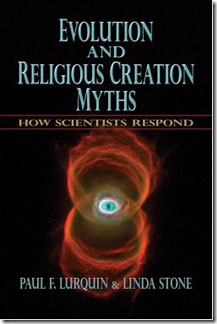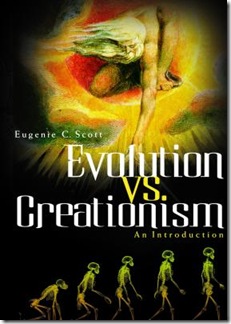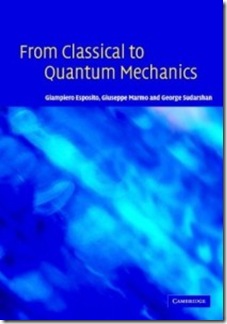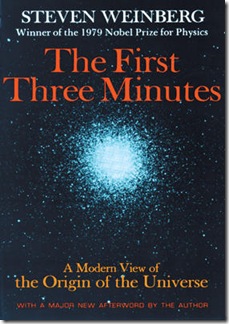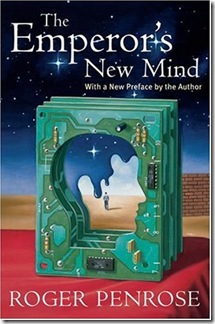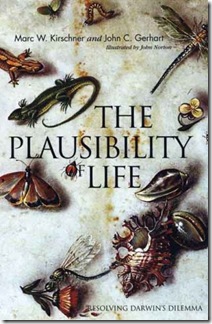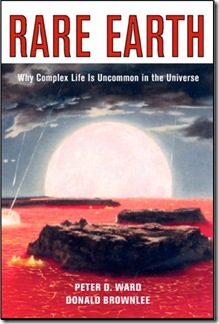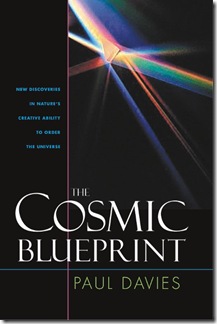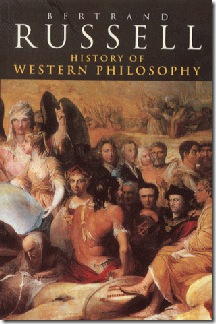E-kitap olarak aradığınız kitaplarla ilgili istek ve taleplerinizi bu başlık altında ekleyeceğiniz yorumlarda iletebilirsiniz.
01 January 2020
20 July 2008
The Genetic Code and the Origin of Life
Product Description
The Genetic Code and the Origin of Life celebrates the 50th anniversary of the discovery of the double helix. This book combines two complementary approaches to address the question of the development of the Genetic Code. The first chapters provide general perspectives into the most important features of the evolution of life and the code. The rest of the chapters provide detailed analyses on the features and evolution of independent components of the code. Thus the book combines a general overview with detailed descriptions. This volume provides a general reference for the academic audience interested in evolution and, simultaneously, consolidates our most detailed knowledge on the biological characteristics of the components of the genetic code.
http://rapidshare.com/files/131043294/kitap40.rar (17636 KB, şifre: 40kitap0)
15 July 2008
Faith and Reason - Richard Swinburne
Product Description
Richard Swinburne presents a new edition of one of his classic works on philosophical theology. Faith and Reason is a self-standing examination of the implications for religious faith of Swinburne's famous arguments about the coherence of theism and the existence of God. Swinburne analyzes the purposes of practicing a religion, and argues that religious faith requires belief that a particular creed provides the rationale for supposing that these purposes will be achieved. While maintaining the same structure and conclusions as the original, this second edition has been substantially rewritten, both in order to relate its ideas more closely to those of classical theologians and philosophers and to respond to more recent views.
About the Author
Richard Swinburne is at Emeritus Nolloth Professor of the Philosophy of the Christian Religion, University of Oxford.
http://rapidshare.com/files/129958407/kitap39.rar (951 KB, şifre: 39kitap9)
13 July 2008
Doubting Darwin? Creationist Designs on Evolution - Sahotra Sarkar
Book Description
The debate about what to teach as science in our schools has reached the boiling point, both inside and outside the classroom. From Young Earth to Intelligent Design creationism, the intrusion of political and religious ideals is damaging the integrity of our public education system. Doubting Darwin? puts the dispute into its scientific and historical context, illuminating the intellectual debate that is shaping educational policy. In his thought-provoking book, noted biologist and philosopher Sahotra Sarkar exposes the frauds and fallacies of Intelligent Design Theory and its claim to be "good science." An expert exploration of key arguments, Doubting Darwin? adamantly rejects Intelligent Design's claim to legitimacy, showing clearly how and why it is an unsuitable alternative to evolutionary biology in the classroom. This book examines the concrete arguments and positions of the Intelligent Design Movement, analyzes the use of computer science and information theory by the creationists, and discusses the relation between Darwin and modern evolutionary theory. Doubting Darwin? is an accessible and engaging read for anyone looking to gain a genuinely informed perspective on this heated debate.
Reviews
"Sarkar's scientific expositions and dissections of Dembski's specious arguments and Behe's lack of imagination are clear, surgical, and authoritative. For those who would fear a return to the middle ages, this is the best critique of ID now available."
- William Wimsatt, University of Chicago
"Part history, part science, and part philosophy, Doubting Darwin? is a deft critique of the new creationism. Sahotra Sarkar hits all the main points with economy and the broad knowledge of a scientist-philosopher."
- Jeffrey Shallit, University of Waterloo
"The West's simultaneous loyalty to Christianity and science is a cognitive dissonance in our culture as a whole, most prominently manifested in the Intelligent Design Movement. Sahotra Sarkar's book is a welcome attempt to apply cognitive therapy to our culture, by talking us through the contradictions in intelligent design."
- David Wolpert, Senior Computer Scientist at NASA
"Sahotra Sarkar lucidly and comprehensively dismantles Intelligent Design creationism in the most powerful way: by explaining the biology. This book summarizes the theory and philosophy of evolution with depth and insight, and in a way that sharply refutes the objections of creationism."
- P. Z. Myers, PhD, University of Minnesota, Morris, and author of Pharyngula Blog
http://rapidshare.com/files/129340772/kitap38.rar (1989 KB, şifre: 38kitap8)
08 July 2008
Evolution and Religious Creation Myths: How Scientists Respond
Abstract for the book Evolution and Religious Creation Myths: How Scientists Respond by Paul F. Lurquin and Linda Stone
Intelligent Design thinking and older style creationism argue that evolution by natural selection is an incorrect theory. We demonstrate that, in doing so, neo-creationism (Intelligent Design, ID) and classical creationism misinterpret the meaning of scientific theories. This is because these religious doctrines imply teleology and purpose in the natural world, which are not analyzable scientifically. In addition, the concept of "irreducible complexity" often invoked by ID proponents is based on a flawed interpretation of scientific data. We also demonstrate that evolutionary thinking in the sciences is a powerful tool that can be used in the study of the origin of the universe, the origin of life and its diversification, and human evolution. Creationism and ID do not belong in the realm of science and have contributed nothing to its advancement. Further, attempts to force the teaching of creationism and ID in schools can only weaken a science curriculum which already leaves much to be desired.
Abstract for Chapter 1
We demonstrate that Intelligent Design can be called a form of neocreatonism that, just like old-style creationism, confuses the word "theory" with the words "postulate" and "fact." We also show that Intelligent Design implies purpose in the universe, a concept that science can neither support nor refute. We further describe creation myths as found in Buddhism, Hinduism, Islam and Judaism, and discuss how these myths influence scientific thinking in various societies.
Abstract for Chapter 2
This chapter describes the Darwin-Wallace theory of evolution by natural selection. In particular, we explain the notion of fitness, which underlies the concepts of descent with modification and the appearance of species categorized into clades. We show that descent with modification is a much better evolutionary theory than the "Great chain of being" model which implies that evolution is driven toward the production of more perfect and complex life-forms. Finally, we explain how the science of genetics strongly supports evolution through the notions of mutation, gene frequencies in populations, and drift.
Abstract for Chapter 3
Here, we rebut irreducible complexity and creationism by explaining the reliability of dating techniques as well as sophisticated laboratory techniques that allow researchers to synthesize extinct genes (genetic archaeology, gene resurrection) and study their homology to other genes. These techniques clearly demonstrate that the irreducible complexity of the eye, the immune system and the bacterial flagellum are subjective impressions. On the contrary, phylogenetic trees based on gene homology show a deep evolutionary link between simple life-forms and complex ones. Finally, we give several examples of "poor design" that cast doubt on the principle of Intelligent Design.
Abstract for Chapter 4
The notions of natural selection and drift also apply to humans and their biological and cultural evolution. The science of paleoanthropology explains human evolution through the study of intermediate fossil forms. In addition, geneticists have been able to retrace, through the study of mitochondrial DNA and Y-chromosome DNA, the origin and migrations of prehistoric humans.
The understanding of human cultural evolution has greatly benefited from the application of evolutionary thinking.
Abstract for Chapter 5
This chapter demonstrates that the origin of the universe was probabilistic, not preordained, because Heisenberg's uncertainty principle would have been violated at the level of the Big Bang. The appearance of structure in the universe was made possible by the decoupling of matter and radiation about 400,000 years after the Big Bang. Structure appeared--and continues to appear--without violating the second law of thermodynamics because entropy is not increasing as fast as it could, and this keeps the universe in a state of disequilibrium, not equilibrium. Life appeared as a consequence of this disequilibrium, possibly involving a sequence of events such as formation of an organic prebiotic soup (or synthesis of organic compounds in hydrothermal vents), the appearance of an RNA world, and the formation of lipid-bound hypercycles.
Abstract for Chapter 6
First life-forms appeared at least as early as 3.5 billion years ago in the form of prokaryotes. Some of these species developed oxygenic photosynthesis, which resulted in the presence of oxygen gas in the atmosphere. Later, eukaryotes appeared and diversified through mutation and gene duplication (including mutation and duplication of master genes), which led to the rewiring of entire gene networks. We show that there is no fundamental difference between macroevolution and microevolution. Finally, we show that making artificial life in the lab, as well as transgenic life-forms, would be impossible if the Intelligent Design scenario were correct. Indeed, ID posits that living systems were holistically designed and thus cannot be constructed in a piecemeal fashion.
Abstract for Chapter 7
Creationists and some conservative politicians are allies in a culture war that threatens science education in the United States. The threat comes from religious ideologies, such as Intelligent Design, that have never provided a shred of experimental evidence to buttress their claims. The proposition that evolutionary science is against human free will is baseless, and so is the contention that the theory of evolution deprives humans of purpose in life.
http://rapidshare.com/files/128151017/kitap37.rar (1742 KB, şifre: 37kitap7)
Evolution vs. Creationism: An Introduction - Eugenie C. Scott
Judith Shulevitz in The New York Times Book Review
Scott could be said to be the one really doing God's work as she patiently rebuts people who make most other scientists spit gaskets like short-circuiting robots. Her book is both a straightforward history of the debate and an anthology of essays written by partisans on each side. Its main virtue is to explain the scientific method, which many invoke but few describe vividly. Scott also manages to lay out the astronomical, chemical, geological and biological bases of evolutionary theory in unusually plain English.
Anyone who wants to defend evolution at his next church picnic should arm himself with this book.
Kefyn M. Catley in Science Education (2006, vol. 90, no. 4, pp. 764-766)
Let me say at the outset that this is quite an extraordinary book, and one I predict is destined to become a classic. Eugenie Scott brings to bear her encyclopedic knowledge of the history of the conflict, passion for the subject, and deep understanding of the legal framework tempered by her long involvement as Executive Director of the National Center for Science Education. This work provides a well-balanced synthesis of the complexities of science, religion, jurisprudence, and education as they pertain to understanding the continuing dichotomy between evolution and creationism. Perhaps its greatest strength, however, is that all this information is so expertly brought together under one cover. ... This book provides a great service to the science community. There is much here for readers at all levels, from high school students and their teachers to university students and their professors, and yes, even for creationists. I recommended the book highly as a text or supplemental book for nature of science, science and society, or high school science methods courses.
David Sepkoski in Journal of the History of Biology (2006, vol. 39, pp. 607-635)
In her textbook Evolution vs. Creationism: An Introduction, Eugenie Scott sets out to provide, in a single, concise volume, an introduction to the basics of evolutionary theory, a summary of creationist critiques and straightforward refutations of those claims, and a survey of primary literature from both camps. Few people are as qualified to address evolution pedagogy as Scott, director of the National Center for Science Education, and the result is a tidy, cogent book that will undoubtedly find its way into many classrooms. ... While there is never any doubt about Scott's viewpoints, she wisely allows readers to work through the issues themselves, making for a much less polemical treatment than many of the other efforts here reviewed.
http://rapidshare.com/files/128147584/kitap36.rar (1328 KB, şifre: 36kitap6)
01 July 2008
From Classical to Quantum Mechanics
Review
'I consider this book to be a valuable and modern contribution which addresses a wide readership. It contains a plenitude of material that can be used by lecturers as well as by students who want to learn interesting topics from a non-standard exposition.' Contemporary Physics
Product Description
Providing a textbook introduction to the formalism, foundations and applications of quantum mechanics, Part I covers the basic material necessary to understand the transition from classical to wave mechanics. The Weyl quantization is presented in Part II, along with the postulates of quantum mechanics. Part III is devoted to advances in quantum physics. Intended for use in beginning graduate and advanced undergraduate courses, the volume is self-contained and includes problems to enhance reading comprehension.
Book Description
This textbook provides a pedagogical introduction to the formalism, foundations and applications of quantum mechanics. Part I covers the basic material which is necessary to understand the transition from classical to wave mechanics. The Weyl quantisation is presented in Part II, along with the postulates of quantum mechanics. Part III is devoted to advances in quantum physics. Intended for use as a textbook for beginning graduate and advanced undergraduate courses, it is self-contained and includes problems to aid the reader's understanding.
http://rapidshare.com/files/125848402/kitap35.rar (36110 KB, şifre: 35kitap5)
The Cell: Evolution of the First Organism
The Cell: Evolution of the First Organism by Joseph Panno, Ph.D., offers an excellent, concise and interesting introduction on the cell and its evolution. Panno opens with a brief overview of theories related to life's origin, then moves to prokaryotes and how they laid a foundation for eukaryotes. Next, he offers an examination of the cell cycle, followed by genes, multicellular organisms, and neurons. Panno does a stellar job of communicating a complex subject clearly (better than many texts as I see it) and sans oversimplification. The black-and-white graphics and glossary are exemplary and useful to the student.
This is my first experience with Panno and the publisher Facts On File, Inc. I am most intrigued. Highly recommended.
The book professes to be targeted at high school or first-year biology students. As I see it, those students would be serious. While it may not be enough for someone with a good deal of biology education, it is excellent orientation for newcomers.
http://rapidshare.com/files/125847398/kitap34.rar (15589 KB, şifre: 34kitap4)
29 June 2008
Genetics and the Logic of Evolution
Review
"…the book is indeed recommendable…" (The Quarterly Review of Biology, December 2004)
"for anyone who wishes to know more about genes and evolution and go beyond the classic, classroom theory--this is the book for you...[will] take you on a ride you won't regret." (Heredity, February 2005)
“For anyone who wishes to know more about genes and evolution and go beyond the classic, classroom theory - this is for you…” (Heredity, Vol. 94, 2005)
"This book is well written and would probably be mainly of interest to students of evolution who have a more philosophical perspective or to philosophy students interested in evolution.” (American Journal of Human Genetics, September 2004)
"This book is highly suited to students and scientists in a range of fields who want to understand how evolution works through genetics.” (E-STREAMS, August 2004)
"This book represents a valiant effort in expanding evolutionary thinking in many biological specialties." (Choice, June 2004, Vol. 41 No. 10)
Product Description
In this book the authors draw on what is known, largely from recent research, about the nature of genes and cells, the genetics of development and animal and plant body plans, intra- and interorganismal communication, sensation and perception, to propose that a few basic generalizations, along with the modified application of the classical evolutionary theory, can provide a broader theoretical understanding of genes, evolution, and the diverse and complex nature of living organisms.
http://rapidshare.com/files/125846522/kitap33.rar (15559 KB, şifre: 33kitap3)
Encyclopedia of Islam and the Muslim World
The reference literature for Islam has long consisted of either a densely academic, multivolume encyclopedia or several, often specialized, single-volume works with brief definitions. Happily, there is now a reference work falling between these two extremes. The Encyclopedia of Islam and the Muslim World is a scholarly work "about Islamic cultures, religion, history, politics, and the like as well as the people who have identified with Islam over the past fourteen centuries."
A team of international scholars is responsible for the 515 entries, which are arranged alphabetically and range from 200 to 5,000 words in length. Many include some sort of illustration and end with helpful see also references and excellent supplemental bibliographies. A useful index completes the set. Coverage includes the religious dimensions of Islam as well as the development of the tradition in various parts of the world (e.g., Africa, South Asia, U.S.). Cultural issues of importance to the history of Islam (e.g., architecture, calligraphy, language) are also treated. Entries such as Political organization and Political thought demonstrate the historical completeness for which the encyclopedia strives, tracing developments from the life of the Prophet to the present day. Even topics of contemporary interest include a historical perspective. The entry for Jihad describes the many meanings of the term, including its contemporary association with violence, and how the concept has developed historically. The treatment of secularization in the Muslim world includes a comparison to historical events in the West, thereby helping the reader to understand that it cannot be understood solely from a Western perspective. Finally, the biographical entries include important figures from the religious, cultural, and political history of the Muslim world.
http://rapidshare.com/files/125826373/kitap32.rar (26314 KB, şifre: 32kitap2)
Encyclopedia of Dinosaurs and Prehistoric Animals
 These are happy hunting days for lovers of dinosaur paraphernalia. As such, the Macmillan encyclopedia has something for everyone: colored reconstructions of the animals matched with a text whose style is accessible to most enthusiasts but whose content is extensive enough for more serious students. Both newly discovered and classic fossil animals are included, and there is background information to put each animal in time, place, and taxonomic perspective. The book's strongest feature is its inclusion of vertebrate animals other than dinosaurs. The variety of fossil fish and mammals should convince the skeptical that dinosaurs had no monopoly on bizarre structure.
These are happy hunting days for lovers of dinosaur paraphernalia. As such, the Macmillan encyclopedia has something for everyone: colored reconstructions of the animals matched with a text whose style is accessible to most enthusiasts but whose content is extensive enough for more serious students. Both newly discovered and classic fossil animals are included, and there is background information to put each animal in time, place, and taxonomic perspective. The book's strongest feature is its inclusion of vertebrate animals other than dinosaurs. The variety of fossil fish and mammals should convince the skeptical that dinosaurs had no monopoly on bizarre structure.
http://rapidshare.com/files/125802363/kitap31.rar (36505 KB, şifre: 31kitap1)
28 June 2008
The Origin of Species - Charles Darwin
One of the most famous and influential books of its (and any) time, The Origin of Species is, surprisingly, little read. True enough, most people know what it says -- or think they do, at any rate. The first comprehensive statement of the theory of natural selection it does, indeed, provide the basic argument and demonstration of what we think of as Darwinism. Not quite offering the misleading tautological Spencerian claim of "survival of the fittest", or the claim that man descends from monkeys (a typical perversion of the understanding of natural selection), the book did turn much of the world and how man thinks about it upside down. It is, well more than a century after its first publication, still a powerful and fascinating read.
In the Penguin edition J.W.Burrow's introduction provides a useful overview of the work and the world in which it was written. Darwin himself offers a brief historical sketch before jumping into his argument. The Origin of Species is built up on a wealth of information. What astounds throughout is how much Darwin knew, had observed, and had considered in forming and formulating his argument. It was not a scientifically ignorant or naive time in which Darwin worked. A great deal was already known at the time -- bits of the huge puzzle that, by themselves, were suggestive clues but needed a larger framework to be completely understood. Darwin provided that framework.
The argument is well presented, beginning with variations under domestication, then in nature itself, then the notion of the struggle for existence, leading inexorably to the conclusion that natural selection guides all. Darwin also addresses what appear to be the weaknesses in his theory. Without a Mendelian understanding of inheritance much is hazarded (and a fair amount wrong), but the gist of the argument remains sound and utterly convincing. (click for full review)
http://rapidshare.com/files/118998614/kitap30.rar (1820 KB, şifre: 30kitap514229)
Intelligent Life In The Universe - Peter Ulmschneider
In this densely written book, Heidelberg University professor Peter Ulmschneider covers a remarkably wide range of questions related to extraterrestrial life and intelligence, and does so with convincing authority. His work, part of Springer's Physics and Astronomy series, has the flavor of a university textbook, with numerous graphs, tables, and diagrams, and a few equations. Readers will need either a basic knowledge of science or a willingness to learn while reading.
Part I, about planets, discusses the origin of chemical elements, planet formation, the search for extrasolar planets, and planets suitable for life. Part II, about life, begins at the most basic level of organic chemistry, then moves on to a condensed discussion of biological evolution on Earth. A much briefer chapter provides a quick overview of the search for extraterrestrial life. Part III, on intelligence, takes an unusual approach by beginning with the future of Humankind, emphasizing human expansion into the solar system and possible threats to our survival. Ulmschneider argues that, by thinking about our own future development, we can gain insights into the nature of extraterrestrial intelligence. He concludes his book with a discussion of extraterrestrial intelligent life, briefly noting some of the proposed explanations for the Fermi Paradox.
This book is not for casual readers. Because it covers so much territory, the discussions are highly condensed. Nonetheless, Ulmschneider has done an impressvie job. The book includes some small but well-reproduced colored pictures.
http://rapidshare.com/files/118998235/kitap29.rar (9419 KB, şifre: 29kitap317811)
24 June 2008
The Logic of Scientific Discovery - Karl Popper
This is the book where Popper first introduced his famous "solution" to the problem of induction. Originally publish in German in 1934, this version is Popper's own English translation undertaken in the 1950s. It should go without saying that the book is a classic in philosophic epistemology--perhaps the most important such work to appear since Hume's "An Enquiry Concerning Human Understanding." Popper argues that scientific theories can never be proven, merely tested and corroborated. Scientific inquiry is distinguished from all other types of investigation by its testability, or, as Popper put, by the falsifiability of its theories. Unfalsifiable theories are unscientific precisely because they cannot be tested.
Popper has always been known for his straightforward, lucid writing style. There are no books on epistemology that are as easy to read and understand than Popper's. Nonetheless, of all Popper's books, "Logic of Scientific Discovery" is easily the most difficult. I don't know whether it is because it was his first book or because it was originally written in German or because of all the technical problems in probability and quantum theory that are dealt within its pages. Whatever the reason, this book, despite its tremendous importance, cannot be recommended to those seeking an introduction to Popper's thinking (and Popper, whether you agree with his conclusions or not, is well worth getting to know). For those who merely want a rough overview of Popper's opinions, perhaps the best book is "Popper Selections," edited by David Miller. For those eager for more depth, I would recommend "Realism and the Aim of Science." Popper no where makes a better case for his epistemological views than in this eminently readable book. Further elaborations of Popper's views can be read in "Conjectures and Refutations" and "Objective Knowledge."
Popper has been severely attacked by philosophers who are offended by his bold fallibilism and anti-dogmatism. No philosopher attacked Popper more strenuously than David Stove. Stove's criticisms are interesting, but they are not as conclusive as one disparaging critic has suggested. Stove makes three main arguments against Popper: (1) Popper theories are bad because they lead to the epistemological relativism of Kuhn, Lakatos, and Feyerabend; (2) Popper's dismissal of induction is contrary to common sense and is therefore "irrational"; and (3) Popper's argument on behalf of "conjectural knowledge" is fallacious because the phrase "conjectural knowledge" is a contradiction in terms. All three of these arguments are logically fallacious. The first commits the fallacy of "argument ad consequentiam," which tries to refute the truth of a doctrine by associating it to its (alleged) consequences. This is, in a way, a sort of guilt by association argument. The second argument simply assumes the very point at issue. No where in his book on Popper does Stove attempt to prove that induction is rational. He simply assumes it is and denounces Popper on the basis of this gratuitous assumption. The last argument is merely verbal and proves only that Popper has violated common linguistic usage. But why should we assume that linguistic usage must always be philosophically right? Stove also makes a great fuss about Popper's assertion that a "falsifiability" is preferable to "irrefutability." Stove assumes that this is palpably absurd. How can a theory that is falsifiable possibly be better than one that is irrefutable? But Stove appears to have missed the whole point of Popper's theory. Falsifiability merely means "testability." Irrefutable, on the other hand, means simply "untestable." When looked at in this line, Popper's theory no longer seems so absurd. In fact, it is merely a great leap forward in the fight against dogmatism and close-mindedness.
http://rapidshare.com/files/118998232/kitap28.rar (3888 KB, şifre: 28kitap196418)
22 June 2008
The First Three Minutes - Steven Weinberg
Steven Weinberg's "The First Three Minutes" might be the best SECOND book to read on Cosmology. Because "The First Three Minutes" concentrates on the very early development of the Universe and does not provide much historical development to what lead up to the great discoveries of the Twentieth Century, a reader with little or no knowledge of Cosmology might find it heavy going.
For instance Weinberg starts off his description of "black body radiation" with "By the 1890s it had become known that the properties of radiation in a state of thermal equilibrium with matter depend only on the temperature. To be more specific, the amount of energy per unit volume in such radiation within any given range of wavelengths is given by a universal formula, involving only the wavelength and the temperature". All of that is absolutely correct of course, but it is a bit much to work through. It seems that a brilliant educator such as Richard Feynman would have thought up a description equally accurate but more intuitive.
"The First Three Minutes" is for the reader who has a particular interest in a detailed description of the first few seconds of the Universe. It is ironic that while the Biblical account of Creation was ridiculed for condensing the entire building of the Earth into 6 days, modern Cosmology describes vastly more dramatic events that occurred in fractions of a second. (I'm not advocating a Creationist theory of the Earth, just pointing out how science has come up with a theory that was beyond anyone's imagination a short time ago.)
"The First Three Minutes" divides up the early Universe into six frames, some lasting less than a second while others extending for more than a minute. In some phases energy dominates while in others matter has the upper hand. Weinberg details the incredibly energetic reactions that took place in the early Cosmological stew of the first seconds of the Universe.
http://rapidshare.com/files/118998234/kitap27.rar (1642 KB, şifre: 27kitap121393)
18 June 2008
The Language of God - Francis S. Collins
I enjoyed The Language of God, by Francis Collins, the head of the US government’s part of Genome project that unravelled the genetic blueprint of humanity. But I’m afraid I did not like the book for the reasons Collins seemed to be hoping for. He was encouraging those with mechanistic and scientific perspectives to consider his “Theistic Evolution” as a way to reconcile scientific fact and a belief in God. As philosophy / theology I think the book was pretty weak - it was a thoughtful and heartfelt personal journey to a belief in God, but little more than that.
The subtitle promises evidence for belief but Collins offers anecdotes, personal feelings, and CS Lewis quotes. Fine, but for the reasons I go into below I want some gosh darn burning bushes, thank you, and think that without them his argument is very weak.
Collins does do an excellent job as scientist. First, he very effectively demolishes “young earth creationism” where proponents maintain the earth is less than 10,000 years old, as a very naive view. Next he tackles “Intelligent Design” and actually made me less sympathetic to this approach than I’d been before, suggesting it’s a “god of the gaps” hypothesis that is already wearing down in the face of increasing understanding of the Darwinian evolutionary processes it claims to challenge . To Collins the scientific evidence is overwhelming and clear - basic chemistry and physics plus Darwinian style evolution explain pretty much all the organisms on the planet. I’m comfortable with that view because I think it springs from a combination of common sense observations and reason.
Much of the book is summarized in Collins’ key notions of Theistic Evolution. I’m comfortable with the science stuff but I simply don’t understand two things that seem to resonate so strongly with him, and I think with many thoughtful people of faith. The first is that morality is a sign of God rather than a product of evolutionary and social forces over time. The second is that God has a personal relationship with humans and cares about us. Here are my concerns about those two ideas: (click for full review)
http://rapidshare.com/files/118968578/kitap26.rar (1011 KB, şifre: 26kitap75025)
16 June 2008
The Emperor's New Mind - Roger Penrose
The Emperor's New Mind by Roger Penrose may be the best book about modern science yet written. The range of issues addressed by Penrose is vast, from Relativity and quantum mechanics, to many questions about mathematics, and ultimately to important questions about Artificial Intelligence; and Penrose's authority as one of the greatest living mathematicians to address these things is unique. Penrose's thesis, therefore, that Artificial Intelligence through computers, as presently constructed, cannot in principle duplicate the workings of the human brain, and his argument that Einstein was not wrong to express grave philosophical doubts about quantum mechanics, are given a weight that they would not have if merely some philosopher, or anyone else less intimately involved with the mathematical and theoretical underpinnings of physics, had expressed similar views.
The Emperor's "new clothes," of course, were no clothes. The Emperor's "New Mind," we then suspect, is nothing of the sort as well. That computers as presently constructed cannot possibly duplicate the workings of the brain is argued by Penrose in these terms: that all digital computers now operate according to algorithms rules which the computer follows step by step. However, there are plenty of things in mathematics that cannot be calculated algorithmically. We can discover them and know them to be true, but clearly we are using some devices of calculation ("insight") that are not algorithmic and that are so far not well understood -- certainly not well enough understood to have computers do them instead. This simple argument is devastating.
Along the way, Penrose has an interesting take on Gödel's Proof of the incompleteness of mathematics. He notes (pp. 105-108) that if David Hilbert were right and all of mathematics could be completely reduced to a formal syntactic system, then mathematics need have no meaning -- "true" and "false" would simply mean "derivable" and "non-derivable" in the formalism of the system. Hilbert himself recognized this and had said that mathematical terms could mean "beer steins, sausages, and tables" instead of what they are interpreted to mean mathematically (obviously, Hilbert spent some time in German beer gardens). Instead, Gödel demonstrated that in any formal syntactic system there will be propositions that are true but not through formal derivation from the axioms of the system. Thus, Penrose notes, they are true because of their meaning, not because of their syntax relation to an axiomatic system. This reinforces the thesis of Jerrold Katz, that syntactic simples are not semantic simples, and so some truths will depend on semantic contents that cannot be exhaustively expressed as syntax. (click for full review)
http://rapidshare.com/files/118968233/kitap25.rar (5173 KB, şifre: 25kitap46368)
The Plausibility of Life: Resolving Darwin's Dilemma - Marc W. Kirschner, John C. Gerhart
Is life plausible? Well, it's more than plausible, it has actually happened! What we need to ask, rather, is whether our explanations for how life came about and diversified are plausible. So the title of Marc W. Kirschner and John C. Gerhart's book implies the wrong question. Despite that, The Plausibility of Life makes for informative and enjoyable reading, and the issues the authors raise are worthy of attention.
The book takes as its starting point the position that the currently accepted version of evolutionary theory, the so-called Modern Synthesis, although not wrong, is incomplete. Similar rumors have been circulated in other recent books, including Mary Jane West-Eberhard's Developmental Plasticity and Evolution, Eva Jablonka and Marion Lamb's Evolution in Four Dimensions, and Phenotypic Evolution, a book by Carl Schlichting and myself. But those rumors have been strenuously denied by researchers who have situated their careers squarely within the Synthesis, which came of age in the 1930s and 1940s.
The two key questions concerning The Plausibility of Life, then, are, Do we actually need to add more components to the structure of evolutionary theory? And if so, is Kirschner and Gerhart's book the contribution some of us have sought for years? The answer to the first question is a definite "yes," and to the second one, a qualified "partially so." Let me explain.
The Modern Synthesis itself built on Darwin's two major realizations: first, that all living organisms are related to one another by common descent; second, that a primary explanation for the pattern of diversity of life—and especially for the obvious "fit" of organisms to their environments—is the process that he called natural selection. It took about seven decades for biologists to add the next round of important building blocks to the Darwinian view of life. Modern Synthesists such as Theodosius Dobzhansky, Ernst Mayr, George Gaylord Simpson and G. Ledyard Stebbins reconciled disparate fields of biology, from population genetics to paleontology, by expanding the array of evolutionary processes to include migration, mutations, assortative (nonrandom) mating and (random) genetic drift. (click for full review)
http://rapidshare.com/files/118967879/kitap24.rar (3428 KB, şifre: 24kitap28657)
13 June 2008
Rare Earth: Why Complex Life Is Uncommon in the Universe - Peter Ward, Donald Brownlee
Written by a pair of professors at the University of Washington, Rare Earth is a polemic for the view that complex life, both animals and higher planets, is rare in the Milky Way Galaxy and perhaps even in the Universe. Thus, the authors contend that there could be many, perhaps millions, of planets scattered throughout the Galaxy on which single-celled microorganisms thrive. On only a handful of planets, perhaps only one, would the air be filled with flying creatures and the ground covered with creepy or crawly things.
Cast in terms of the Drake equation, the authors believe that fl, the probability that life will originate on a habitable planet, could approach unity (1). However, they argue that fh, the fraction of planets that are habitable, and fi, the probability that intelligent life will develop on a planet on which life has emerged, are individually or both probably quite close to 0. Thus, the total number of technological civilizations in the Galaxy would be small, perhaps only one. (However, they also mis-characterize the Drake equation as assuming that "once life originates on a planet, it evolves toward ever higher complexity." As the Drake equation contains a factor fi there is clearly no assumption in the Drake equation itself that life "evolves toward ever higher complexity.")
The authors bring to bear a number of different aspects of the Earth's astrophysical, geological, and biological history, some of them fairly recently appreciated, to support their argument. Among these aspects are
- A Galactic habitable zone, the possibility that habitable planets can only exist in a restricted region of the Galaxy,
- A temporal habitable zone, based on the fact that a star's luminosity gradually increases over time meaning that in 1 billion years or so the Sun will boil away the Earth's oceans,
- The presence of a comet-slaying giant planet to reduce considerably the number of comets that strike a habitable planet, like Jupiter in our solar system,
- The "snowball" Earth hypothesis, that on at least two occasions the Earth's oceans may have largely or entirely frozen over, and
- The time between the first appearance of life on this planet and the Cambrian explosion when the diversity of life exploded and animal life first appeared.
It has been this reviewer's experience that reading well-written apologies of a position with which one disagrees can often make one sharpen one's arguments. Rare Earth cannot be put in this category. I found it not only to be not convincing, but not particularly thought provoking and in some places sloppy almost to the point of being wrong. (click for full review)
http://rapidshare.com/files/118967532/kitap23.rar (2328 KB, şifre: 23kitap17711)
12 June 2008
The Cosmic Blueprint - Paul Davies
Is a creative force at work in the universe? Physicist and Templeton Prize laureate Paul Davies thought so when he wrote The Cosmic Blueprint in 1988, now being reissued in paperback. Davies is an excellent writer and any reader will learn much from this book.
In recent years, Davies has been joined by many other scientists and theologians in pursuing a common theme, that the data from physics, cosmology, and biology cannot be understood by purely "reductive" processes and some additional, holistic process, natural or supernatural, is strongly suggested.
Davies notes that, according to modern cosmology, our universe, in some sense, emerged at the Planck time (10-43 seconds into the big bang) from a state of complete disorder. That is, the universe began at this point with no structure or organization. This has theological significance, which Davies does not sufficiently emphasize. If the universe had no structure at some point in the past, such as the Planck time, then any present structure cannot have come from before that time. The present highly textured universe cannot have resulted from a "built-in" plan present at the Planck time. There is no "cosmic DNA" present at the conception of the universe to guide its future development. The complete absence of such a preordained plan after the appearance of the universe, suggests that even if God created the world, that world has no memory of his intentions in doing so.
In Davies' view, since the Planck time, some unidentified creative force has acted continuously to bring about the increasing order and complexity that characterizes our present universe. He presents as evidence the developments in chaos, complexity, and self-organization that were relatively new and encouraging in 1988, but have generally failed to live up their promise as possible generators of cosmic order. As considerable research since then has shown, highly ordered and complex phenomena arise simply and naturally from the same, basic, reductionistic processes, that account for all other phenomena. Structure has been seen to self-organize by the mechanisms of physical law, chance, and selection. The much-desired holistic, order-generating, force has not yet shown its face.
Davies acknowledges that no law of physics, including the second law of thermodynamics, is violated by the natural evolution of order from disorder in thermodynamically open systems. All he can do is fall back on the something vaguely reminiscent of the god of the gaps: We don't know exactly how something happens, so it must happen by way of some previously unknown force. He ends by claiming, "The impression of design is overwhelming." That may be what people want to hear, but it is not my impression or that of most scientists viewing the same data. Indeed, I find overwhelming the impression of lack of design, from the cosmos as a whole on down to life on Earth. As Richard Dawkins has so eloquently put it: "The universe we observe has precisely the properties we should expect if there is, at bottom, no design, no purpose, no evil and no good, nothing but blind pitiless indifference."
http://rapidshare.com/files/118967297/kitap22.rar (1898 KB, şifre: 22kitap10946)
Debating Design: From Darwin to DNA - William Dembski, Michael Ruse
William Dembski, prominent leader of the Intelligent Design movement, and Michael Ruse, prominent defender of evolutionary theory, have teamed up to give us a rich collection of essays centering on the Design debate. While admitting that they are "at opposite ends of the spectrum", the editors agree that ID is a significant enough movement on the current scene, "if only culturally," that it "should not be ignored." (p.4) But cultural and social agendas, and defenses against them, are thankfully absent from this volume; the focus is on intellectual debate in which each side is supposed to present its best arguments so that each can know what the other is saying, and so that the reader "can quickly grasp the fundamental claims and counterclaims being made." (p.4)
The collection is also helpful in giving a background to the Design debate -- in Ruse's "Brief History" of the design argument and Angus Menuge's "Survey" of the ID movement; and also in Elliott Sober's useful analytical and historical discussion of the design argument -- especially the key claim that the design hypothesis is "more likely" than naturalistic alternatives.
But the main attractiveness of this book for this reader was the variety of viewpoints and issues that radiate out from the two central foci of evolution and design. The discussion ranges far beyond the claims and counterclaims of the two opposing theories. Indeed, there are four very different viewpoints represented about equally in the four sections of the book: I. Darwinism; II. Complex Self-Organization; III. Theistic Evolution; and IV. Intelligent Design, each with four or five contributors. (But one wonders, why is the theory that supposedly generates the whole debate put last? It should be first.) (click for full review)
http://rapidshare.com/files/118967111/kitap21.rar (1300 KB, şifre: 21kitap6765)
10 June 2008
A History Of Western Philosophy - Bertrand Russell
There are many ways to read this book, in its way, one of the key works of twentieth century philosophy. It can be used as an encyclopaedia of philosophy, ordered not alphabetically, but chronologically. Many people in fact do use it like that, looking up in the index a particular philosopher (or less often) a theme, and then reading Russell's short, accessible, witty summaries of the great ideas and individuals.
Then it may be used - as Russell asks us too- as a work of social history, comparing and explaining general trends and processes in not only philosophy but in human civilisation. Very few people use it like that.
Then again, it can simply be used as a good read - a chapter a week for one and a half years, for hat is how many chapters there are. Many people, doubtless, buy it with something like this in mind. Rather fewer, I would say, persist in that optimistic belief. For Russell's History of Western Philosophy is simply too long, too episodic, too tiring to be read like that.
As an encyclopaedia it is full of errors and omissions. It's unfortunate that many of these have passed (unchecked) into general use, ill-recalled opinions of Russell repeated as objective fact. Russell himself admits in the foreword to not being an expert on any of the philosophers with the possible exception (he slightly immodestly adds) of Leibniz. He excuses this in his attempt to unify the disparate specialisms, a task reflected in the History's lumping together of philosophers under various headings. So for instance, Descartes leads to liberalism, and Rousseau to Nazism, according to Russell. (click for full review)
http://rapidshare.com/files/118965380/kitap20.rar (4455 KB, şifre: 20kitap4181)
Atheism: The Case Against God - George H. Smith
This book is a hard hitting attack against belief in the Christian God as well as all other supernatural beings (called 'gods' in the book). Intended primarily for laymen and consequently relatively free from technical philosophical argument and jargon, this book might well be used in a beginning course in the philosophy of religion as a fair representation of contemporary atheistic thought. Students would, I believe, find it more provocative and challenging, than some other treatment that may be technically more sophisticated. The author's direct and forceful way of making his points has great appeal; clearly, it is a book written with deep intellectual passion.
However, there are some limitations to the book as an introduction to atheism and teachers of philosophy might wish to supplement it with other works. First, Smith's critical treatment of the standard arguments for the existence of God is incomplete. Variants of the cosmological and technological arguments are critically evaluated, but the ontological argument and other arguments for the existence of God are not considered. Second, the argument against the existence of God from the existence of evil is (by the author's own admission) not treated in depth. The author believes (incorrectly, I think) that relative to other difficulties with belief in God the problem of evil is not important (80). Third, arguments against the existence of God using some version of the verifiability theory of meaning are not developed at all. (click for full review)
http://rapidshare.com/files/118966755/kitap19.rar (730 KB, şifre: 19kitap2584)
05 June 2008
In Defense Of Atheism - Michel Onfray
 Review by G. Charles Steiner
Review by G. Charles Steiner I did find three names in the course of the book: Nietszche, Gilles Deleuze, and Jeremny Bentham (particularly Bentham's work, "Deontology").
Monsieur Onfray's analysis of Christian, Judaic, and Islamic faiths, all three united under the point of view of "hatred of life" (in conjunction with suppression of sex and advocacy of violence), is quite readable, fair, and clear. (Onfray does not himself in his book use the term "hatred of life" per se as a philosophical concept(a term I borrow from Schopenhauer), but his philosophic meaning nonetheless is abundantly and perfectly clear.)
He declares unmistakeably that Hilter was a Roman Catholic and the Catholic Church, without question, supported Nazism. Monsieur Onfray's analysis is such that Catholicism appears to be the worst evil suffered in the West thus far. However, in the discussion of the Muslim faith, Monsieur Onfray reveals how frighteningly violent it is, particularly should this faith get a good foothold in the West. (Shades of Sam Harris's point of view about Islam appear with "The End of Faith" as well with a good many other writers, including Mark Steyn's "America Alone.") (click for full review)
http://rapidshare.com/files/118965006/kitap18.rar (1086 KB, şifre: 18kitap1597)
The Cambridge Companion To Atheism - Michael Martin (Ed.)
 Review by J. L. Schellenberg
Review by J. L. Schellenberg This book is a reference work on atheism intended for students and nonspecialists. Its eighteen authors include eleven writers from philosophy, three from religious studies, and one each from sociology, anthropology, psychology, and law. Quite well organized, the book has three chapters on Background, nine on The Case Against Theism, and six on Implications. It is often interesting and stimulating, and contains a good deal of useful material. But its chapters are of uneven quality, and some will be tough going for beginners. The book also features some internal tensions (perhaps the inevitable result of such a diverse set of contributors). These tensions are not in themselves disturbing and could even be pedagogically useful. But they might have been acknowledged up front and better integrated into the overall flow of the book.
One of the questions that such a collection should obviously be expected to address is this: What is atheism? The editor, Michael Martin, tenders an irenic answer in his General Introduction: atheism can be positive (disbelief) or negative (the absence of belief), as well as narrow (disbelief or absence of belief specifically with respect to the personal God of traditional theism) or broad (disbelief or absence of belief with respect to all gods). This explication is not entirely unattractive. One remembers, for example, that A. C. Grayling, an atheist if ever there was one, is in his new book not just against the God of traditional theism but Against All Gods. But the idea of negative atheism is not easy to accept (at least for me). Martin says that in Greek a can be read as 'without' and theos means 'god', and hence there is linguistic warrant for thinking of atheists as those without a belief in gods. But his contributor on the Greek period (Jan M. Bremmer, 'Atheism in Antiquity') apparently disagrees, suggesting that one who was atheos would originally have been taken as being without gods or "godforsaken" (19), a notion that (as even the Psalmist knew) comports better with belief in the Divine than with nonbelief. And William Lane Craig ('Theistic Critiques of Atheism') points out that if simply the absence of belief in God makes one an atheist, then "even infants count as atheists" (70). Given such worries (and certain related ones I haven't space to point out), and because of the separate identity that another form of the 'absence of belief ' -- namely, agnosticism -- has in the last century clearly carved out for itself, it might have been better to stick with what Martin calls positive atheism, broad and narrow, in this volume. (click for full review)
http://rapidshare.com/files/118963388/kitap17.rar (5022 KB, şifre: 17kitap987)
02 June 2008
God: The Failed Hypothesis - Victor J. Stenger
 Review by Austin Cline
Review by Austin Cline Given how much science has had to say about nearly everything else in our lives and how successful science has been in transforming nearly every aspect of them, it is at the very least initially implausible that science can and should be excluded from debates about the existence of gods. Then there is the fact that theists themselves frequently trot out arguments that rely upon scientific data — or at least misrepresentations of scientific data — in order to bolster their positions. Finally, we must face the fact that any alleged god that matters will have some sort of impact on our lives, our planet, and our universe.
Only a completely irrelevant god could leave no trace or imprint whatsoever, so if there is a god and it does matter, then it should be detectable even by a science that is completely limited to observations about the natural, material world. Indeed, most believers — and especially adherents of the three prominent monotheistic religions: Judaism, Christianity, and Islam — posit precisely such a god that is active, detectable, and relevant to our material universe.
Given all this, it's not feasible to pretend that science can have nothing to say; according to Victor J. Stenger, science does in fact have a great deal to say — and none of it will be comforting to the average believer. According to Stenger, science may not know everything, but it knows enough and has advanced far enough to provide substantial empirical evidence against the existence of the god which most people tend to believe in. (click for full review)
http://rapidshare.com/files/118962819/kitap16.rar (1654 KB, şifre: 16kitap610)
God is not Great - Christopher Hitchens
...In spite of these and many more minor flaws, I did enjoy Hitchens searing wit and sarcasm. He goes much further than Sam Harris and Richard Dawkins in debasing religion. Interestingly, many critics of Dawkins try to paint him as mean spirited and fundamentalist atheist, yet anyone who has ever read his books and seen his lectures and interviews knows that he comes off as thoughtful, kind and shows great humor. Hitchens, on the other hand, comes off as downright belittling, and I love it! About time, I say, but his belittling has good reason behind it. As Thomas Jefferson once wrote, "Ridicule is the only weapon which can be used against unintelligible propositions." Hitchens ridicules with wit, and I suspect that many of his put-downs will go over the heads of many religious people. For example, look how Hitchens reduces Aristotle's gods and the last remaining god of monotheism:
Aristotle, whose reasoning about the unmoved mover and the uncaused cause is the beginning of this argument, concluded that the logic would necessitate forty-seven of fifty-five gods. Surely even a monotheist would be grateful for Ockham's razor at this point? From a plurality of prime movers, the monotheists have bargained it down to a single one. They are getting ever nearer to the true, round figure.
http://rapidshare.com/files/118962411/kitap15.rar (1318 KB, şifre: 15kitap377)
01 June 2008
Genome - Matt Ridley
A brilliant and eminently readable introduction this book explains the concept of the human genome. Ridley does a remarkable job of introducing you to how genes work, what their interactions seem to be, and the relationship between heredity and free choice. He makes a compelling case that in the end our genetic code contains limits (humans can not fly on their own) and probabilities (how likely we are to get breast cancer or Alzheimer's) but there are so many specific individual choices that no two twins are identical. If identical twins with identical genetic inheritances interact with their environment and their life experiences to become two substantially different people then imagine the range of differences between all of us.
There are so many thought-provoking sections of this book that it is hard to single out any one item. Let me just note that the chapter which discusses mad cow disease and its human analogue, the laughing disease of New Guinea which was a major cause of death among the Fore Tribe. Ridley's explanation of the role prisons play in causing these diseases is lucid and yet the science behind it is daunting.
For those who care about science education Ridley's approach to the mystery of knowledge explains a great deal about why the fact and memory based modern American approach to teaching science drives children away from the field. Consider just this passage: "The theme of this chapter is mystery. A true scientist is bored by knowledge; it is the assault on ignorance that motivates him -- the mysteries that previous discoveries have revealed. The forest is more interesting than the clearing." We need a science education based on learning about the unknown rather than memorizing the known. Ridley explains these principles again and again throughout the book.
If you care about the most important scientific revolution of the last twenty years this book is a very good starting point.
http://rapidshare.com/files/118961958/kitap14.rar (1327 KB, şifre: 14kitap233)
Evolutionary Genetics - John Maynard Smith
 Review by Amazon
Review by Amazon The first edition of Maynard Smith's "Evolutionary Genetics" (first published in 1989) was welcomed as the first comprehensive introduction to the molecular and population aspects of evolutionary genetics, and has now become one of the definitive textbooks in the field. Aimed at advanced undergraduates in the biological sciences, the book covers basic population and quantitative genetics, evolutionary game theory, behavioural evolution, sexual selection and mating systems, speciation, and macroevolution. Theory and mathematics are clearly explained, with the aid of problems at the ends of the chapters, and the author takes care to place these within the context of questions central to current research in evolutionary biology. This second edition has been revised and updated throughout to reflect new findings and research interests. In the chapter on phenotypic evolution, the author incorporates new research on game theory. The discussions of sex and host-parasite interactions have been extensively revised and the author has added a new chapter on molecular genetics and the reconstruction of evolutionary history. "Evolutionary Genetics" remains the essential textbook for advanced undergraduates seeking a clear, comprehensive, and up-to-date account of the theory of evolutionary biology.
http://rapidshare.com/files/118961774/kitap13.rar ( 21405 KB, şifre: 13kitap144)
31 May 2008
Cosmos - Carl Sagan
I first saw the series COSMOS on TV in about 1980 when I was about 12, and have been searching for similar material ever since. Carl Sagan is able to capture the mystery and the beauty of astronomy, science, art and religion in a way that most poeple can follow, and in a way that is interesting and invigorating. He is a very clear thinker and presenter. And this book, based on that very popular TV series of the same name, I found in an old book store, which I immediately grabbed. Here was something of my childhood, and something very special. The book did not disappoint. It is filled with stunning images, photographs, illustrations, diagrams and so on. And the text is fun, enlightening, clear, visionary, and precise. Not surprising, since it is written by an atronomer at heart. It is also advisable to search around and buy the illustrated edition-the illustrations add much to the text.
Carl places the earth on the shores of the cosmic ocean-the title of the first chapter. He traces religious, artistic and scientific investigations into the 'cosmos' throughout the millenia, and the amount of useful historical information he brings up is quite extraordinary. He draws together the thoughts of ancient cultures like the Greeks, Babylonians, Stone Age man, Renaissance thinkers, poets, artists, and famous scientists, and ties these in with many modern discoveries concerning the nature of the universe. One can see his strong leanings on the likelihood of extraterrestial life and the SETI project between the lines, as well as his views on religion and its place in the human psyche. One particularly interesting peice describes the downfall of the old greek science and the destruction of the library at Alexandria, and how these tie in with his views on history, science and religion in general. (click for full review)
http://rapidshare.com/files/118961443/kitap12.rar (1098 KB, şifre: 12kitap89)
Darwin's Dangerous Idea - Daniel C. Dennett
 Review by Danny Yee
Review by Danny Yee Darwin's original application of natural selection was, of course, to the origin of species. Dennett explores different ways of visualising the "tree of life" and explains the problems involved in defining species (decisions about species status are necessarily retrospective). This is illustrated with an explanation of the often misunderstood "Mitochondrial Eve" phenomena.
At this point Dennett introduces a metaphor which is used throughout the book: "cranes" are devices or "good tricks" that allow design to proceed faster, but which build on existing foundations; "skyhooks" are entirely mysterious, pre-existing hooks in the sky which enable some problem to be solved or some complexity to be created entirely independently of ordinary processes of design. Dennett argues that there is no place at all for skyhooks and that the only bad reductionism is a "greedy" reductionism that tries to do without cranes. (click for full review)
http://rapidshare.com/files/118961017/kitap11.rar (2858 KB, şifre: 11kitap55)
Breaking the Spell - Daniel C. Dennett
 Review by complete review
Review by complete review Dennett's approach is emphatically scientific, as he considers religion as a 'natural phenomenon' and not as the divinely inspired super-natural institution that is so widely held to be beyond scientific inquiry. Much of the book is, in fact, devoted to merely justifying the approach, as Dennett worries that his audience may find it inappropriate, irrelevant, or even dangerous. (Dennett's first words are the warning that he is: "an American author, and this book is addressed in the first place to American readers" -- readers who apparently require special care and handling on the subject (something many of those who read drafts of the book apparently complained about).) (click for full review)
http://rapidshare.com/files/118960734/kitap10.rar (2100 KB, şifre: 10kitap34)
A Brief History Of Time - Stephen Hawking
 Review by Nick Donaldson
Review by Nick Donaldson The result is a truly enlightening book: a classic introduction to today's most important scientific ideas about the cosmos, and a unique opportunity to experience the intellect of one of the most imaginative, influential thinkers of our age. From the vantage point of the wheelchair where he has spent the last twenty years trapped by Lou Gehrig's disease, Professor Hawking himself has transformed our view of the universe. His groundbreaking research into black holes offers clues to that elusive moment when the universe was born. Now, in the incisive style which is his trademark, Professor Hawking shows us how mankind's "world picture" has evolved from the time of Aristotle through the 1915 breakthrough of Albert Einstein, to the exciting ideas of today's prominent young physicists. (click for full review)
http://rapidshare.com/files/118960307/kitap9.rar (1390 KB, şifre: 9kitap21)
Atheist Universe - David Mills
 Review by Leland Waldrip
Review by Leland Waldrip With this book David Mills has delivered a coup d’etat to any thought of reconciling religion and science. Post-modernist apologies and attempts to bridge the gap between religion and science he gives no quarter. He very carefully and methodically attacks every religious argument outside the realm of human invention for the existence of a god. His favorite target is the irrationality of Christian belief and the Bible's contention of a young earth, Noah’s flood, Genesis genealogies, etc. One rather interesting point he made in an almost casual manner was an observation that the genealogies in Matthew and Luke of the New Testament describe (contradictory) detailed male lineages of Jesus back to King David, and thereby create a trap for the writers of those books: The virgin birth would preclude any blood relationship through Joseph, so how could there be a lineage between Jesus and David? In debunking the prophesy of the Bible, Mills describes an absence of accuracy, noting that as far as accuracy is concerned, the Bible is a non-prophet organization. (click for full review)
http://rapidshare.com/files/118959811/kitap8.rar (1504 KB, şifre: 8kitap13)
The Ancestor's Tale - Richard Dawkins
 Review by Jim Walker
Review by Jim Walker The title derives from an allusion to Geoffrey Chaucer's Canterbury Tales, where the characters tell tales on their way backward to ancient Canterbury picking up pilgrims along with way at various rendezvous points. Dawkins Canterbury represents the origin of life, the oldest ancestor to our unbroken heritage. The pilgrims in Dawkins story describe our cousins the chimpanzees, gorillas, primates, mammals, animals, etc. The 'beginning' starts with us, the human beings, and the story goes backward in time, following the long branching tree of evolution from the outermost twig, the branches, the trunk, and finally to the root of all life.
Dawkins has a very good reason for describing the evolutionary path backwards rather than forward. Many laymen evolutionists (and religionists) have incorrectly concluded that evolution progresses linearly and has a purpose where we humans act as the target for a 'higher' form of evolution. If one looks at evolution in the direction of forward time, it can lead one to this false sense of progress. Because of Dawkins disavowal of aimed evolution, he chose to do history backwards to avoid this misconception. And it works. Looking at evolution backwards gives us a novel and new appreciation for the diverse and branching aspect of evolution. At each branch point (rendezvous point) we meet our ancestors (Dawkins invents the term concestors). The first rendezvous point, for example, examines our first cousins the chimpanzees, our closest relatives on the DNA chain. This backward way of looking at evolution shows us that humans did not evolve from chimpanzees but rather we evolved out of a shared concestor which gave rise to chimps and humans. A major rendezvous occurs with rendezvous 26 (about 590 million years ago), when all the insects, molluscs, and the worms join. Then we go on to meet the fungi, the plants and eventually the bacteria at some indeterminate time in the ancient past, where all life shares the same ancestor. It takes only 40 rendezvous points to travel back to the beginning of life on earth itself. This appears breathtaking when one considers that all living things trace their lineage back to a single ancestor, a bacterium that lived more than three billion years ago. All life as we know it consists of DNA and all living things, including bacteria, share common genes. (click for full review)
http://rapidshare.com/files/118957659/kitap7.rar (30191 KB, şifre: 7kitap8)
A Devil's Chaplain - Richard Dawkins
 Review by Jim Walker
Review by Jim Walker Reading such intelligent thoughts, put so simply and clearly, and with profound originality, this book can't help but to elevate the reader to some inspired mental plane, unless the reader happens to possess that viral disease called Faith. Anyone who harbors that ugly mental disorder will find themselves vomiting objections to the very thing that just might cure them. Richard Dawkins serves as the doctor who has a cure; a treatment that the infected mind, by its very nature, will at first want to reject. However, if the brave believers can get past their infirmity's power of denial, they will have the inoculative tools to help rid themselves of unnecessary (and dangerous) beliefs.
A Devil's Chaplain, written by one of the most renowned evolutionary biologists, comes from his personal selections from past articles, lectures, book reviews, forewords, tributes and eulogies that he had published over 25 years. A few of you may notice that many of the chapters from Dawkins book had previously appeared on John Catalano's wonderful web site, The World of Richard Dawkins.
No doubt some of the Religious Right will believe that the title of this book describes Dawkins as a disciple of Satan, but actually the phrase comes from a letter by Darwin where he jokingly refers to a book by a Devil's Chaplain explaining the cruel works of nature (an idea that a religious mind who thinks their god has created perfect designs in 'His' image, might want to reconsider after reading this book).
The subjects in this book range from the latest views of evolutionary biology, Darwin, the methodology of science, memes (a lot on memes), ethics, religion (a lot on religion), and heros. Of his heros, Dawkins writes lovingly about the lives of Douglas Adams (of Hitchhiker's Guide to the Galaxy fame), W. D. Hamilton, John Diamond, Richard Leakey, and Stephen Jay Gould. (click for full review)
http://rapidshare.com/files/118957559/kitap6.rar (7240 KB, şifre: 6kitap5)
